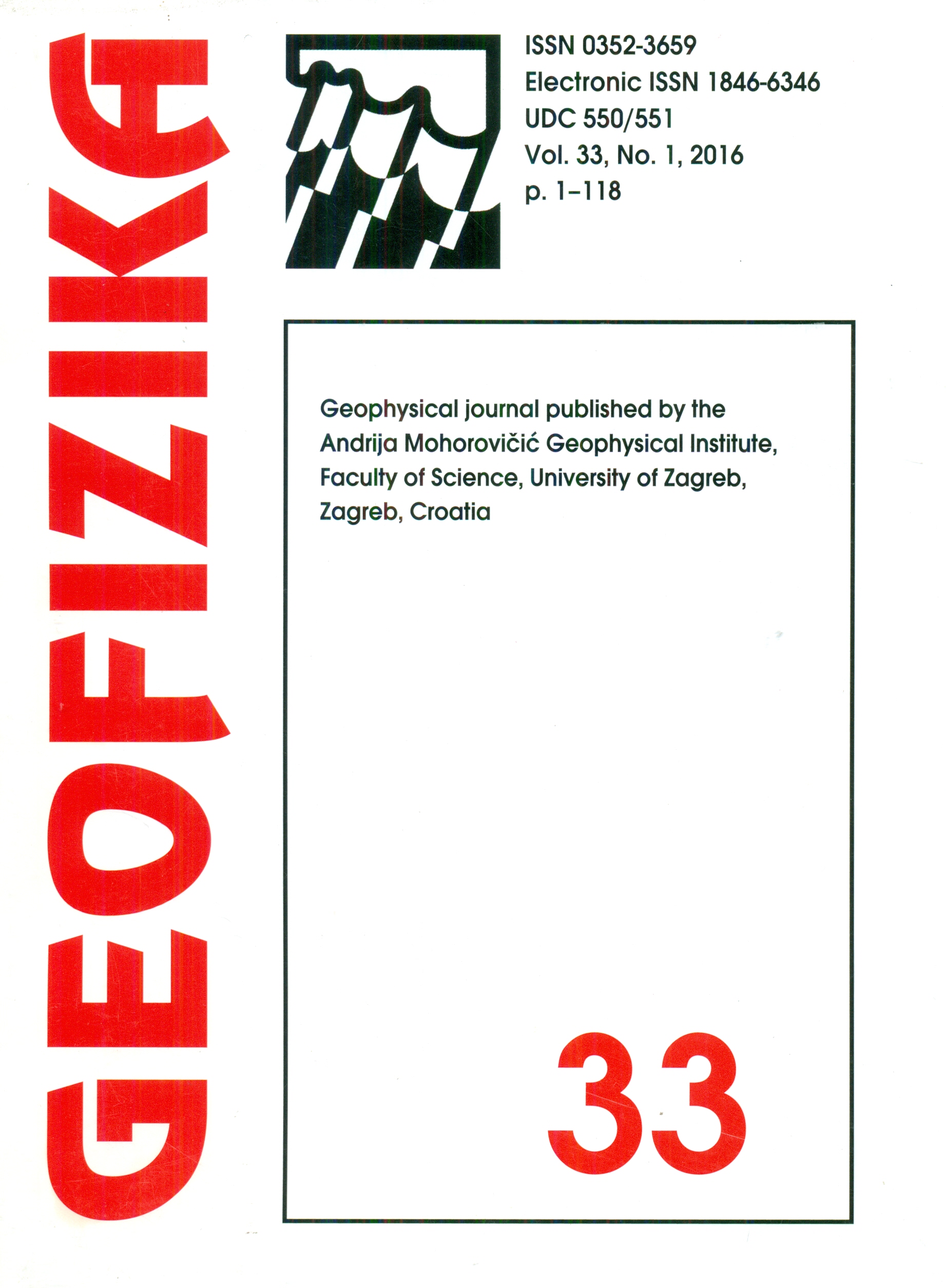Seiches in the Plitvice Lakes
DOI:
https://doi.org/10.15233/gfz.2016.33.6Keywords:
Plitvice, seiches, periods, bathymetry, tufa growthAbstract
A campaign of high-frequency measurements of water level was carried in the two largest of the Plitvice Lakes, Prošće and Kozjak, to study seiches in the lakes. Measurements were performed at 1-min sampling rate during a 46-day interval, at two opposite ends in each lake, which also provided information on the phase relations. Power spectra were calculated to determine the periods of the normal modes. The observed peaks in the spectra were interpreted with the help of theoretical results obtained by the simple numerical method of Defant, where two different historical bathymetries were used. The lake Prošće oscillates at the periods of 8.5 min, 5.0 min, 3.3 min and 2.2 min, the oscillations being related respectively to uni-, bi-, three- and five-nodal seiche modes, whereas the four-nodal mode (2.5-2.7 min) was not significant during the experiment. The lake Kozjak oscillates at 9.0 min, 4.9 min and 2.6 min, which corresponds respectively to the uni-, bi- and four-nodal mode, the five-nodal mode is likely at the period of 1.9 min, while the three-nodal mode (~ 3.4 min) was not generated; the deeper sub-basin displays its own principal mode at the period of 2.3 min. The discrepancy between the observed and the calculated periods is attributed to poor representation of the basin by the historical bathymetries, especially at Prošće, but also to changes in basin depth, due to continuous process of tufa growth.
Downloads
Published
Issue
Section
License
Copyright (c) 2021 Geofizika journal

This work is licensed under a Creative Commons Attribution-NonCommercial 4.0 International License.

